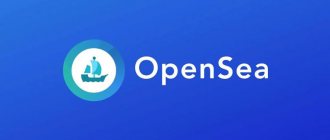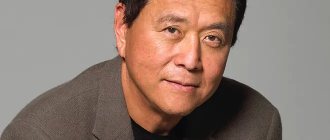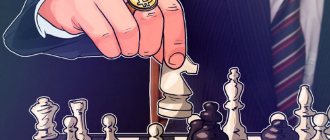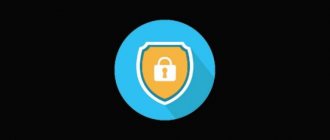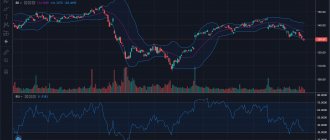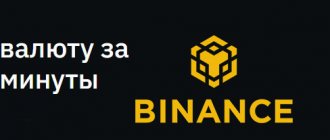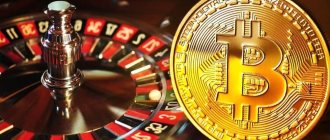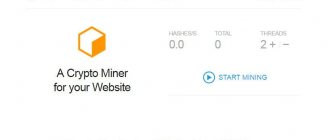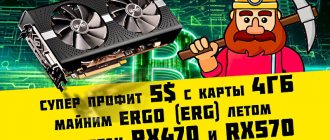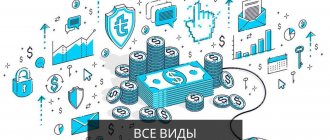Property Management, Financial Literacy
The author of the well-known bestsellers, Robert Kiyosaki, in many of his works talks about what assets and liabilities are, and the importance of understanding their difference. According to the millionaire, many people are on the verge of poverty because they do not feel this difference.
Robert Kiyosaki will divide two types of cash flows:
- An asset is something that brings a person some kind of income (monetary or otherwise), that is, it always has a positive income in one’s pocket.
- Liability, on the contrary, is accompanied by reverse cash flow.
It is worth listening to the words of a millionaire who says that to prosper you need to increase assets and reduce liabilities to a minimum.
Poor man's financial report
In the previous article we talked about financial literacy. The fact that the population is not taught how to manage money. We are taught only skills that will make us good workers. In this case, life is determined by the amount of wages. And this means:
- You are working for the development of someone else's company
- You are most likely paying off loans and mortgages. This is a liability that increases monthly payments
- You work for the state
Deductions from an employee’s salary in Russia:
- Personal income tax 13% (personal income tax)
- PF 22% (pension fund)
- FSS 2.9% (social insurance fund)
- Compulsory medical insurance fund 5.1% (compulsory health insurance fund)
- According to the law, personal income tax is paid by the employee, the remaining 3 taxes are paid by the employer. In reality, of course, the employee pays everything. Because the employer does not pay this 30% additionally to the employee in the form of salary. Personal income tax, by the way, can be partially returned; read about this in Article 218 of the Tax Code.
The picture shows that a poor person only has enough money from paycheck to paycheck. He can only afford to cover his minimum expenses. This approach to life is very risky. Due to the fact that a person’s “Assets” column is empty, he receives money only while he is working. In case of unforeseen situations, a person is left without a livelihood. Anyone can experience health problems, layoffs at work, or eviction from rented housing. In this case, a person without savings will get into debt and loans, which will worsen his situation. Those who have experienced this themselves are unlikely to want to repeat this again.
In order to prevent this, you must:
- To begin with, Kiyosaki advises getting rid of debt. Sell that part of your valuable property that you can do without. This could be jewelry, branded clothing, household appliances, a car
- Review your expenses and eliminate everything unnecessary (we tell you how to keep track of income and expenses here)
- Start saving money for future investments
- Change your job to a higher paying one, retrain, or start your own business.
Financial report of a middle class man
This figure shows a more standard situation. The middle class earns more, so its expenses are wider. Why are these people experiencing financial difficulties? Because the main source of income, like the poor, is salary, and the “Assets” column is still empty. As wages increase, taxes rise accordingly. As income increases, so do expenses.
The problem is that these expenses are not related to assets. As soon as a person starts earning more, he begins to think “it’s time to expand the living space,” “new renovations,” “new household appliances,” “a car of a different brand,” and so on. But these are all liabilities, and money slips through your fingers.
The situation for the middle class is more complicated than for the poor. Earning more, people think that it will always be this way and even better. They begin to “improve” their quality of life with liabilities. This is running in circles.
When I hear that doing business involves big risks, I am overcome with bewilderment. Is it serious to think that business is a big risk, and consider mortgages, car loans and credit cards to be the norm?
I believe that this approach to life is very risky. Because there are no assets, but there are expensive liabilities that require servicing, and loans. There will be a moment when you do not receive your salary, creditors will take their toll.
Hope for a stable salary, social support, pension, free healthcare and education is just hope. Nothing guarantees all of these benefits. This is why it is so important to be a financially literate person. Be able to invest in assets in order to receive additional income not from the salary fund. And also have an airbag for at least a few months of life.
What exactly will you learn from Rich Dad Poor Dad?
First of all, a practical understanding of the basic principle - “you need to spend less than you earn.” It would seem to sound very simple, but few people apply this principle in practice. This is why most people have no savings.
Other topics covered include financial intelligence, investment risk, and the need for continuous self-improvement on the topic of financial education. The comparison of the worldview of a rich father with the beliefs of a poor father makes you think, especially when faced with your own experience... read and see for yourself.
Rich man's financial report
Robert Kiyosaki's main advice: “Save your asset.” Why do the rich get richer? Because the rich invest in assets. Accordingly, their incomes are growing. Over time, their income becomes greater than their expenses. The rich monitor their spending, regardless of their financial situation. This drawing is an example of the cash flow of an asset according to Robert Kiyosaki. The ideal model is shown here, but at first it can be combined with work; it is not necessary to start your journey with dismissal.
Robert Kiyosaki says that before you start your own business, you need to get financial education. Doing business, according to Kiyosaki, is investing, that is, creating and maintaining assets that will generate income for you. If you invest money in assets, then the money begins to work for you. That is, a business is not necessarily an individual entrepreneur and a shawarma stall. This is competent management of money, assets and liabilities.
“An asset is something that puts money in my pocket. Liability is what takes money out of my pocket."
Robert Kiyosaki, "Rich Dad Poor Dad"
Let's look at the types of assets according to Kiyosaki:
- A business that doesn't require my presence. It belongs to me, but is managed by other people. If I am forced to work there, it is no longer a business. It becomes my job.
- Stock
- Bonds
- Mutual funds
- Investments in real estate that generate income
- IOUs and promissory notes
- Royalties for intellectual property (music, scripts, patents)
- Any other property that has value, generates income, or increases in value and is easily traded
However, Kiyosaki judges assets from the point of view of American reality. I will allow myself to speculate about the types of assets in Russia, based on my observations and life experience.
Of course, I am not a professional financier. I have a higher education in economics, but I have not worked by profession. However, I am interested in the world of investment, accounting and proper budget allocation.
Please consider this not as a guide to action, but as food for thought about the financial side of your life.
- Property that is for rent. This is a very popular type of passive income in Russia. These can be private houses, land plots. However, usually the choice is made towards an apartment or commercial premises.
- Investments in real estate under construction. For example, shared construction. An apartment at the foundation stage or a project in general is cheaper than after construction. After construction, you can rent out or sell the property.
- Construction of real estate and further sale. There are 2 ways to acquire such an asset: build it yourself or hire workers. Of course, the first option is more profitable. But for this you need to have some construction skills and time. When building a country house, you need to take into account the location and demand so that there is a possibility of profitable sale in the future.
- Investing with the prospect of future increases in real estate prices. For example, you know that in 3-5 years it is planned to open a metro in this area. Or this cottage community has dynamics of expansion and infrastructure development. These are all sure signs that property values will increase in the future.
- Land for rent with further assignment. For example, you lease a plot of land from the state and then assign the lease rights to a third party. In this case, it is also worth assessing the benefits of the location and anticipating demand.
- Bank deposits have their place. However, at the moment I see the profitability of deposits only in cooperative banks. Usually the percentage of return they offer is at least higher than the percentage of inflation.
- Intellectual works. I think, in addition to publishing a book, this could also include creating a website or channel on YouTube, for example. In the modern world, advertising revenue is gaining momentum.
- Any property that generates rental income. For example, a car for rent to a taxi or cargo transportation.
- Creating your own business or investing in someone else's business. This type of asset, of course, requires more of your participation if you want to increase profitability.
- Knowledge and professional skills are also assets if they help you in financial development. For example, you can take courses on investing in stocks and bonds, invest and receive income. Or get trained in “bankruptcy trading” and use your knowledge in the real estate market. In this case, even your knowledge will be an asset that will bear fruit.
Creating your own business provides you with financial security. But to do this, you need to focus not on the income column, but on the assets column, which will be the foundation of your budget.
It is useful to gain knowledge, hone your skills...
The means to achieve this goal is not receiving (earning) significant sums of money, but prudent management of current funds. This is what the author states in his thoughts, but this requires not only desire... It is necessary to acquire knowledge with the help of which it is possible to bring everything to life, without leaving material wealth only in the realm of dreams. Try, without thinking only about money, to create your own plan for developing skills in the practical application of cash flows, operational systems and human resource management. At the same time, sharpen your accounting and legal skills, adapting this knowledge to your investment strategy in a complex, competitive market that you also need to know inside out.
Another useful tip from the author is to keep an open mind and be flexible in the context of market changes, which, if managed correctly, never pose a threat. Common sense, vigilance and constant monitoring of the market situation will allow you to capitalize on the upcoming changes. Constantly learn and notice new things. Getting stuck at your current level is a big mistake. Only the constant development of skills and the expansion of existing knowledge enriches not only intellectually, but also materially.
Robert Kiyosaki's assets
In one of his interviews with Forbes magazine, Kiyosaki said that his main asset columns are intellectual property (Rich Dad seminars, books, games) and real estate rentals. There is no information about the full set of assets, but it is known that, among other things, the financial guru actively invests in the oil industry, precious metals and coins, solar panels and financial markets.
You may also be interested in other articles on books by Robert Kiyosaki:
- A person's thoughts shape his life
- Rich people don't work for money
- Why financial literacy is needed
- The path itself is the goal
- Cash Flow Quadrant
- Financial freedom, what is it?
Author: Nikita Kuznetsov
The main thing is not to give in to impulses!
Robert Kiyosaki, as the undisputed mentor of modern financial education, also points out another important element of wealth success. Namely, he suggests the need to closely monitor the portfolio, which he also calls a business. All investments should be made only under the influence of a well-thought-out decision and not on impulse. Mastering a business is critical to success, so the author's advice seems especially useful, especially when the surrounding society lives wastefully. Mastery of business is critical to success, so the author's advice seems especially useful, especially when the surrounding society lives wastefully.

